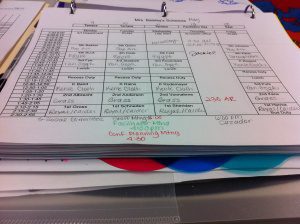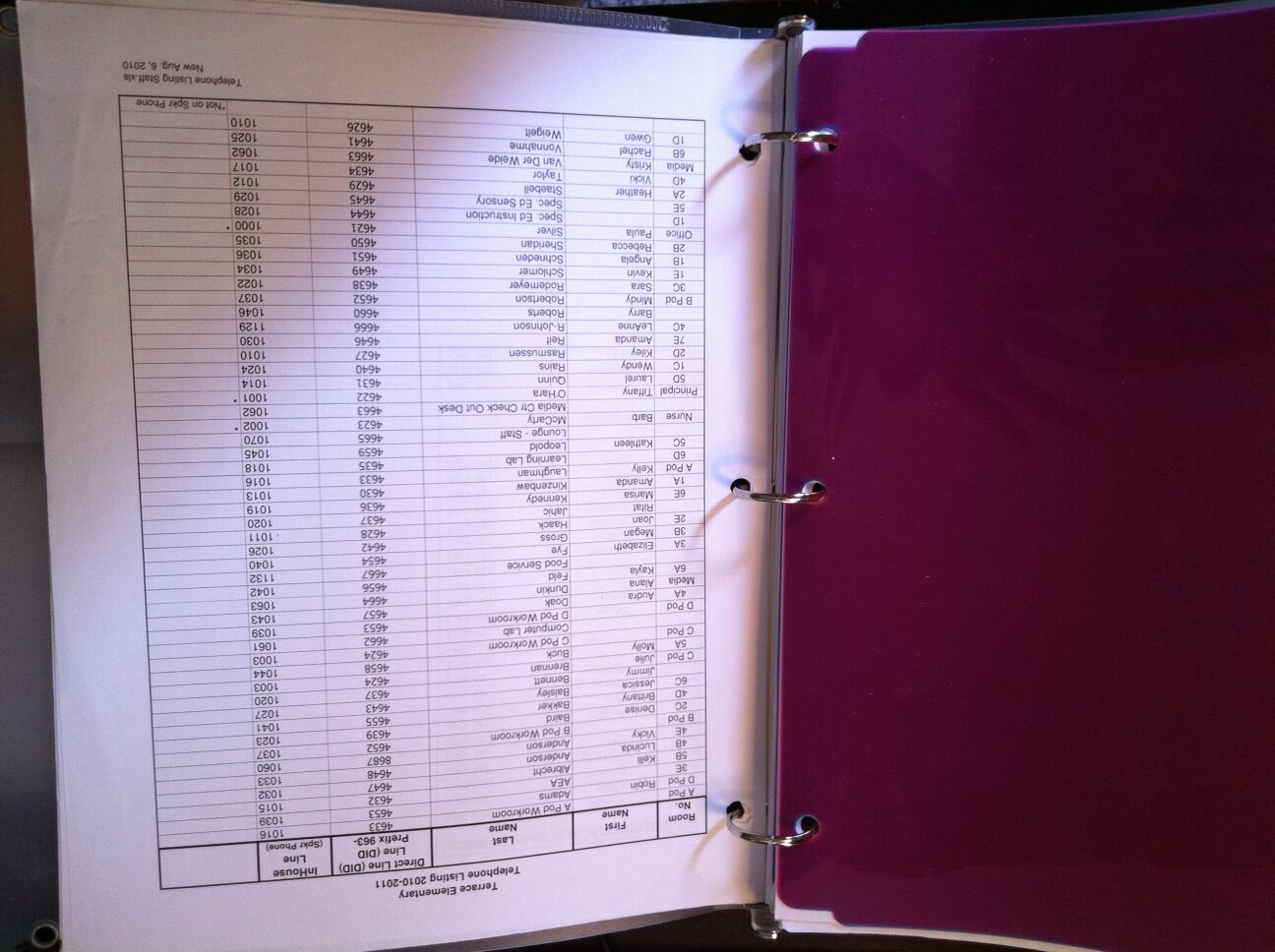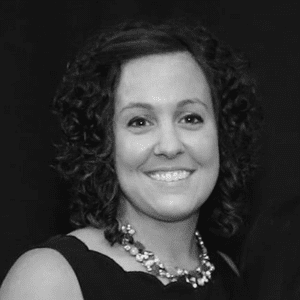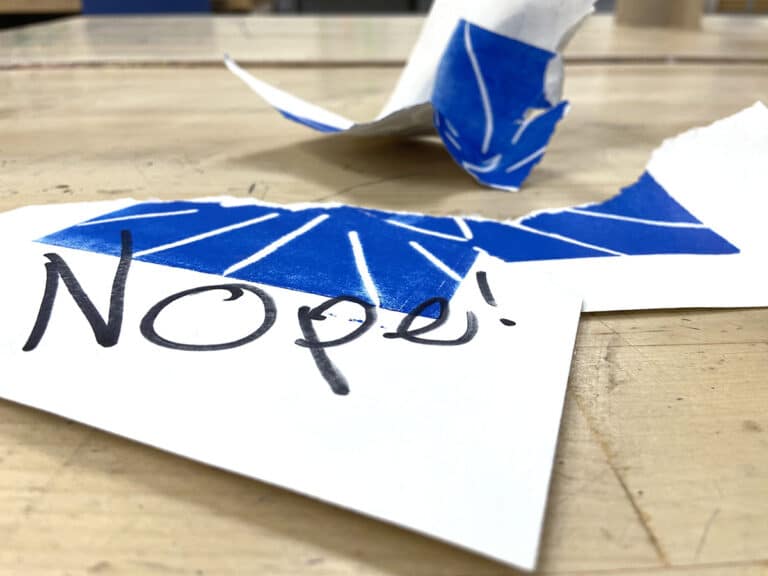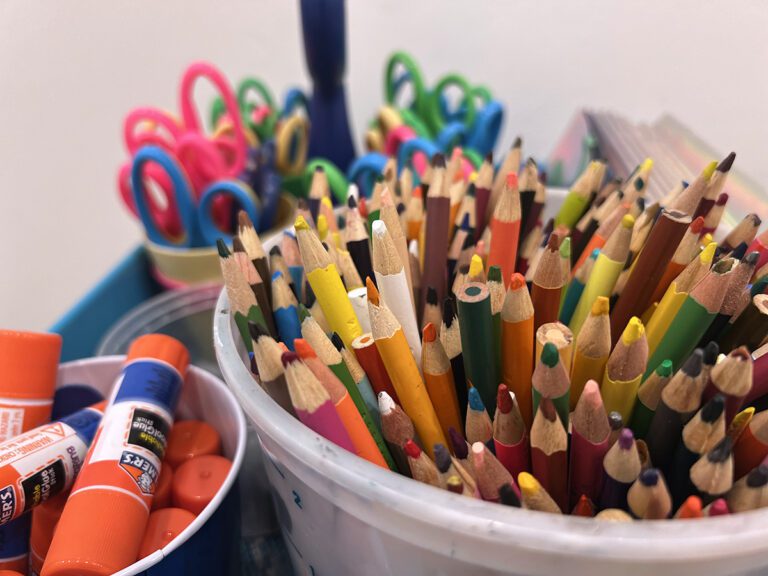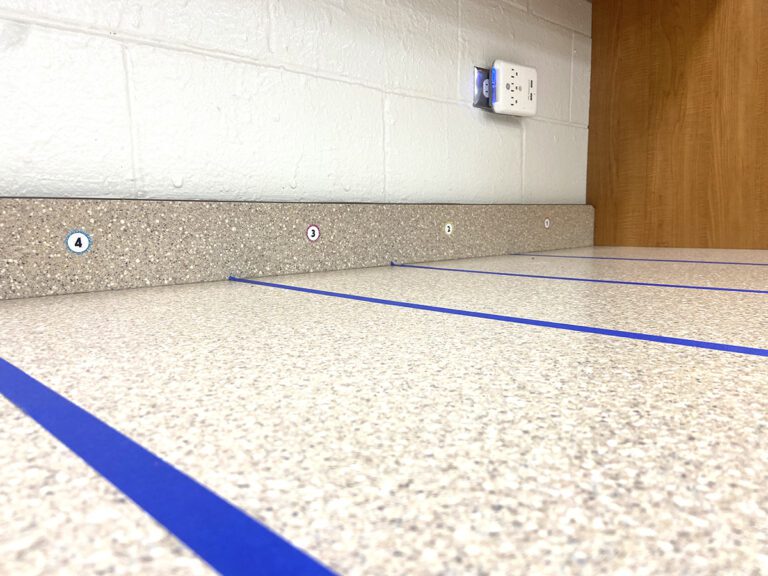As teachers, if we’re not careful, our paper clutter can get overwhelming…fast. My suggestion? Put everything in ONE binder.
Binders sometimes get a bad rap. Why? Because usually, we have binders of things we never look at. We just file stuff away in a binder because it seems like the organized things to do.
However, this binder system is different.
I’ve created a binder that ONLY holds things I will use every day.
The binder sits at the end of my desk and houses my schedule, curriculum and lesson planning guide, PD planner/calendar and contact information all in one.
The binder is soft sided and closes up with one of those rubber band type deals so I can easily pack it up for meetings and when I travel between schools.
Inside the Binder
Tab 1: Daily/Weekly Schedule
The first tab of the binder holds my daily/weekly schedule. This portion of the binder lays flat and is open all the time on my desk, so I can easily see which class is coming next and what our activities will be.
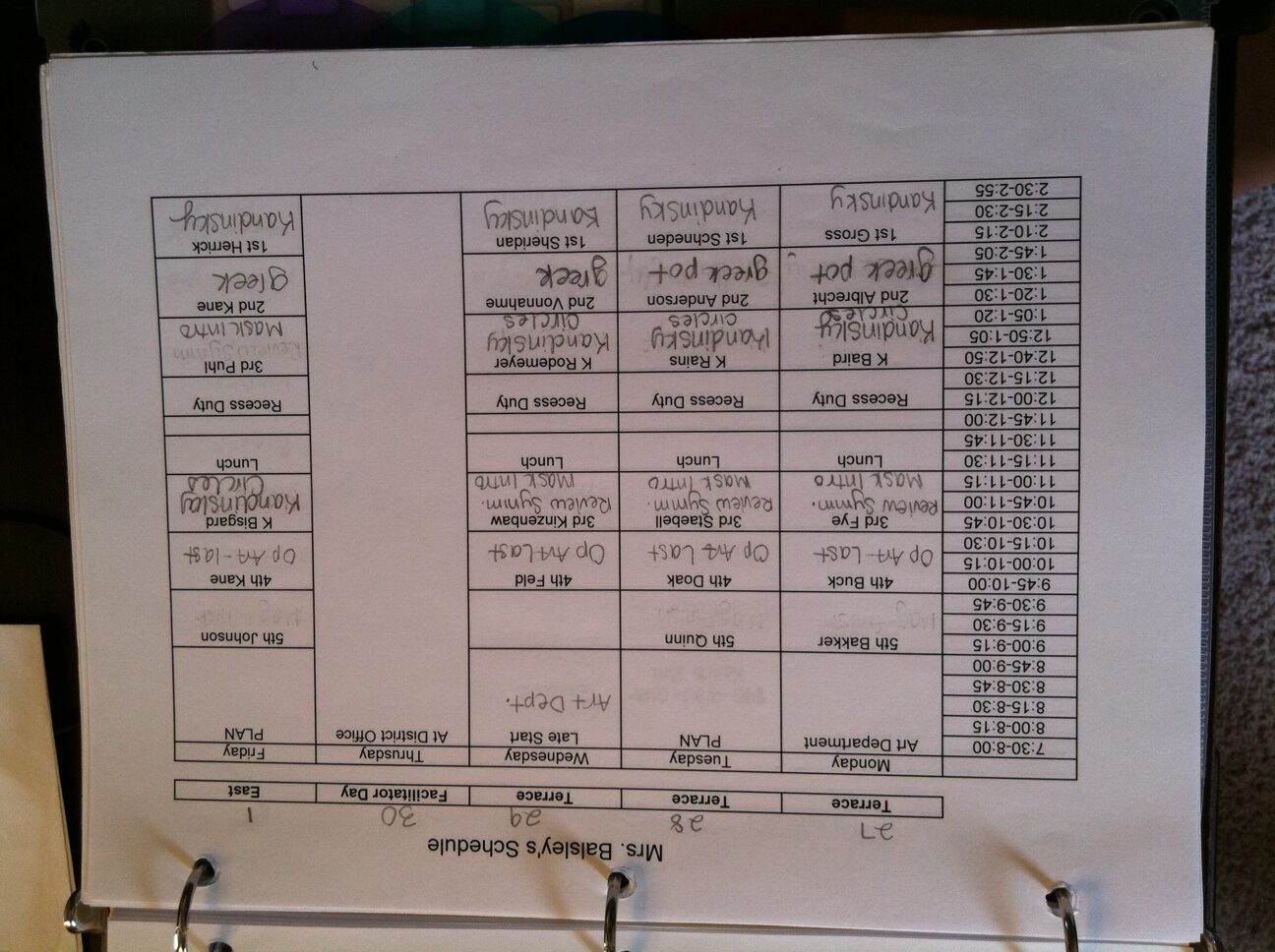
Tab 2: Monthly Calendar
This is where I record meetings, special events, and notes about what is going on during a particular month. Weekly, I transfer items from the monthly schedule to the weekly schedule, so I am sure not to miss an early out, field trip, after-school meeting, etc. In my personal life, I use a digital calendar, but I have yet to make the switch in my work life.
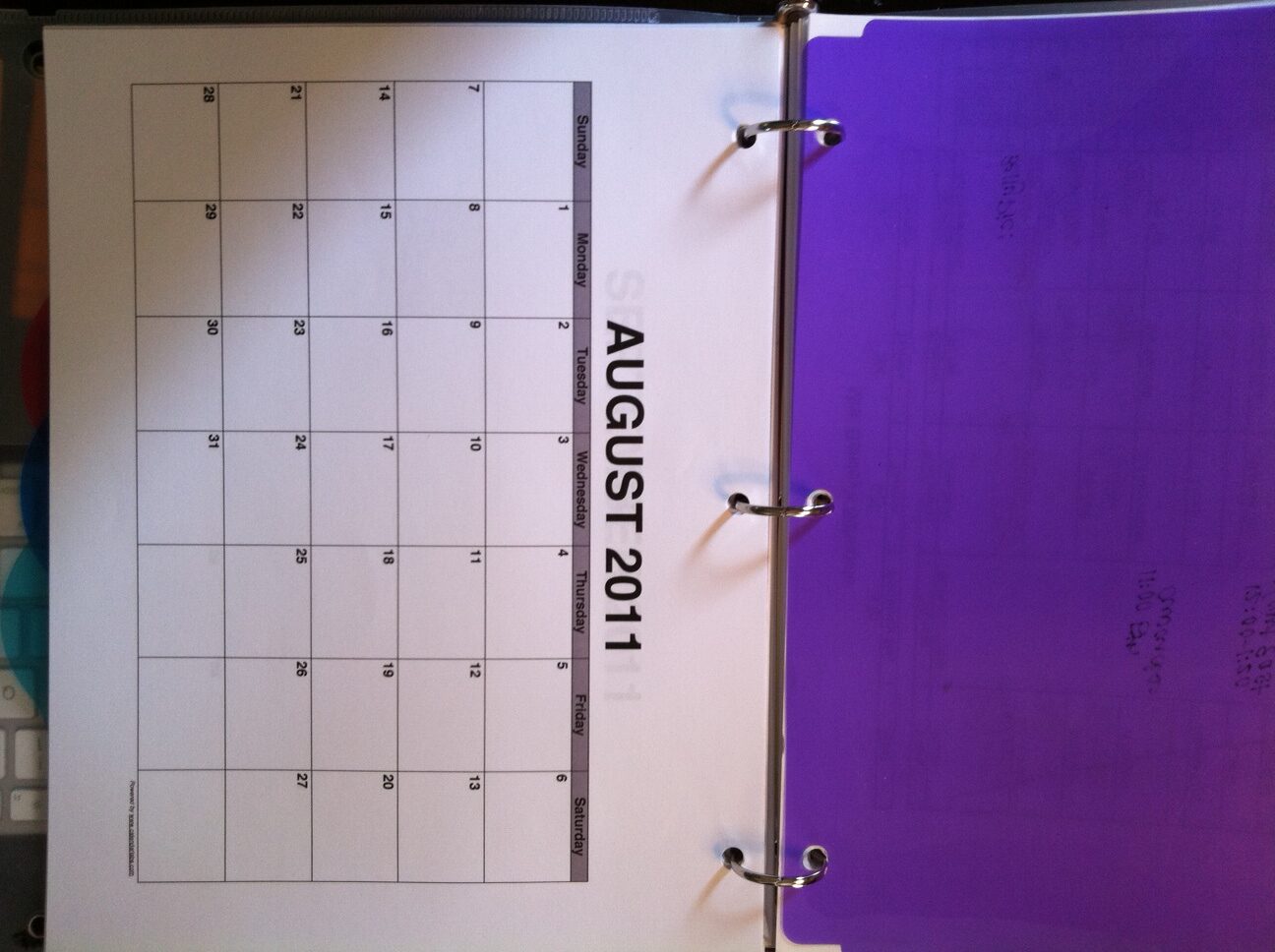
Tab 3: Curriculum and Lesson Planning
The next tab in the binder contains my curriculum maps and plans. Items from this tab will get transferred to my weekly schedule (first tab) as the months and lessons change.
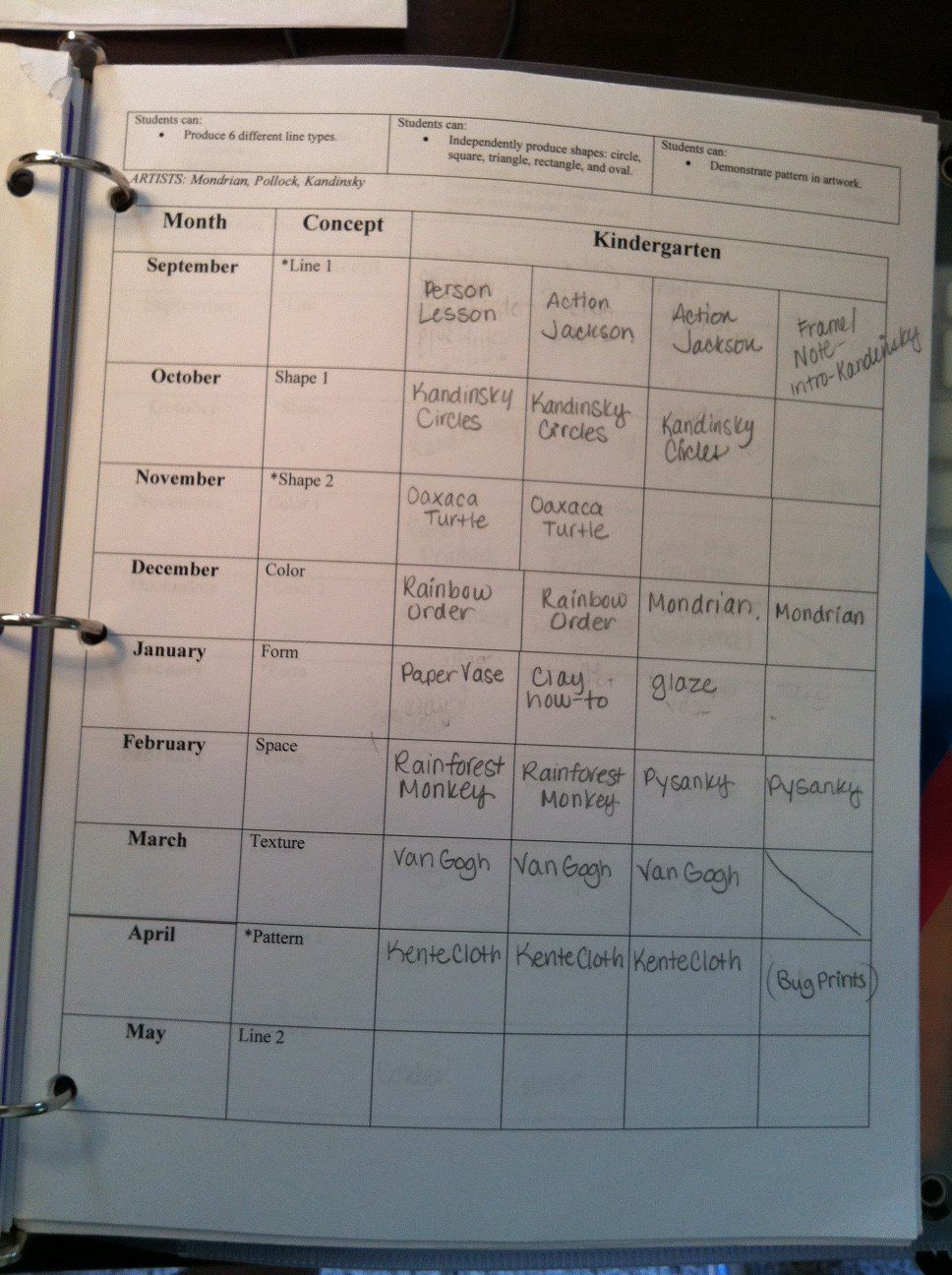
Tab 4: Contacts
The last tab holds important phone numbers. I have both emergency numbers and numbers of people I may need to call in my school and my district. This has come in handy many times. Because this binder always sits on the edge of my desk, the numbers are always within reach. I do have plans to organize some numbers and info right beside my phone at some point as well.
What other strategies do you have for kicking paper clutter for good?
Magazine articles and podcasts are opinions of professional education contributors and do not necessarily represent the position of the Art of Education University (AOEU) or its academic offerings. Contributors use terms in the way they are most often talked about in the scope of their educational experiences.
